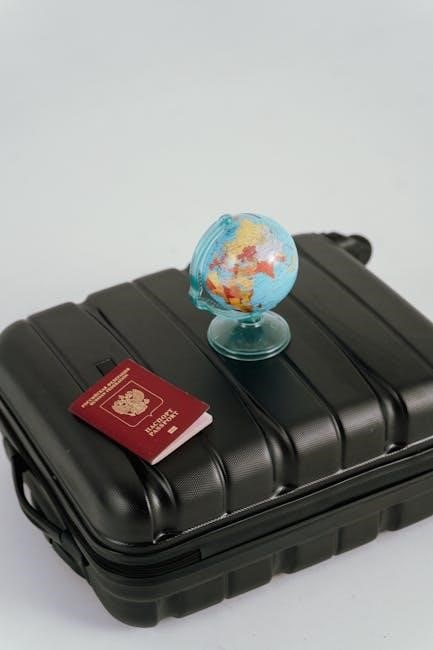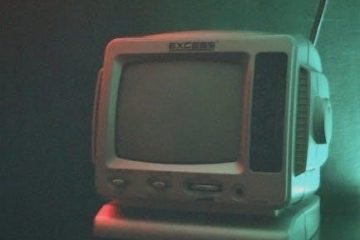Williams-Sonoma, a renowned home goods retailer, faces significant criticism for its pricing, quality, and marketing practices. This guide explores common complaints, from overpriced products to deceptive “Made in USA” claims, helping consumers make informed decisions.
1.1. Overview of Williams-Sonoma and Its Critics
Williams-Sonoma, a luxury home goods retailer, has faced growing criticism for its high prices, questionable product quality, and controversial marketing tactics. Critics argue the brand prioritizes aesthetics over functionality, with many products deemed overpriced and lacking durability. Additionally, the company has been accused of deceptive “Made in USA” claims, leading to a record-breaking FTC penalty. While some loyal customers praise its design appeal, others criticize its focus on profit over customer satisfaction and safety.
1.2. Purpose of the Guide: Exploring Common Complaints
This guide delves into the recurring issues that have sparked dissatisfaction among Williams-Sonoma customers; By examining high prices, quality concerns, and deceptive marketing, it aims to provide clarity for those considering purchases. The purpose is to highlight the gap between the brand’s luxury image and the realities of its products and customer service, helping consumers make more informed decisions while avoiding potential pitfalls.
The FTC Penalty: A Record-Breaking Fine for Deceptive Practices
Williams-Sonoma faced a $3.175 million penalty for violating FTC’s Made in USA guidelines, the largest such fine, highlighting deceptive marketing practices that misled consumers and damaged trust.
2.1. Details of the $3.175 Million Civil Penalty
Williams-Sonoma incurred a record-breaking $3.175 million fine for violating a 2020 FTC order requiring truthful Made in USA claims. The penalty stemmed from misleading advertisements, particularly for PB Teen mattress pads imported from China but labeled as “Crafted in America.” This deceptive practice harmed consumer trust and unfairly competed with honest businesses. The settlement also mandated stricter compliance measures, ensuring accurate product origin disclosures moving forward.
2.2. Violation of the 2020 FTC Order on Made in USA Claims
The FTC found Williams-Sonoma in violation of a 2020 order by falsely labeling products as “Made in USA.” Products, such as PB Teen mattress pads, were wholly imported from China yet marketed with misleading claims. This deceptive practice not only misled consumers but also undercut U.S.-based manufacturers. The FTC emphasized the importance of truthful advertising to maintain fair competition and consumer trust in the marketplace.
2.3. Impact on Consumer Trust and Brand Reputation
The FTC penalty and deceptive “Made in USA” claims significantly damaged Williams-Sonoma’s reputation. Consumers felt misled, leading to a loss of trust. The record-breaking fine highlighted unethical practices, tarnishing the brand’s image. This scandal, combined with criticism over product quality and pricing, has eroded customer loyalty and raised questions about the company’s commitment to transparency and honesty in its business dealings.
Overpriced Products: A Key Complaint Among Critics
Williams-Sonoma is often criticized for its high prices, with many products perceived as overpriced and lacking value. Critics argue that the brand prioritizes aesthetics over affordability and quality.
3.1. High Price Points and Perceived Lack of Value
Williams-Sonoma is frequently criticized for its high price points, which many consumers believe do not align with the quality or functionality of its products. The brand often targets affluent customers, raising concerns about its value proposition. Critics argue that similar products from competitors like IKEA or Target offer better affordability without compromising on style or quality, further fueling perceptions of overpricing and a lack of value for the average consumer.
3.2. Comparison with Competitors and Market Alternatives
Williams-Sonoma’s high prices often draw comparisons to more affordable competitors like IKEA and Target, which offer similar styles at lower costs. Amazon and Wayfair also provide alternatives, sometimes with faster shipping and better deals. Critics argue that while Williams-Sonoma emphasizes design, brands like West Elm and Crate & Barrel offer comparable aesthetics at competitive prices, making it harder for Williams-Sonoma to justify its premium pricing strategy to budget-conscious shoppers.

Quality Concerns: High-End Appearance vs. Actual Performance
While Williams-Sonoma products boast a sleek, high-end design, critics often argue that their durability and functionality fail to match their premium aesthetics, with some items feeling subpar.
4.1. Mixed Reviews on Product Durability and Functionality
Customers often report inconsistent quality, with some products excelling in durability while others fall short. For instance, certain kitchen gadgets and home goods may look stylish but lack longevity. Critics highlight issues like flimsy materials and poor performance, such as with specific mattress pads that, despite their attractive design, fail to meet expectations. These discrepancies highlight a gap between aesthetic appeal and practical functionality, frustrating many buyers.
4.2. Examples of Poor-Quality Gadgets and Home Goods
Some products, like certain mattress pads from PB Teen, have been criticized for being wholly imported yet marketed as “Made in USA.” Additionally, several gadgets and home goods are reported to have subpar construction, offering more style than substance. These issues underscore concerns about the brand’s commitment to delivering quality, especially given their premium pricing and the expectations that come with it.

Customer Service Issues: A Source of Frustration
Customers often report difficulties with returns, refunds, and unprofessional interactions with staff, leading to widespread dissatisfaction and frustration with the brand’s service experience.
5.1. Difficulties in Returns and Refunds
Customers frequently express frustration with Williams-Sonoma’s return and refund processes, citing lengthy delays and complications. Many report difficulties in obtaining refunds, with some claiming the company retains payments for months. Additionally, issues with credit card charges and uncooperative staff exacerbate the problem, leading to heightened customer dissatisfaction and mistrust in the brand’s commitment to resolving issues fairly and efficiently.
5.2. Unprofessional Staff and Lack of Resolution
Customers often criticize Williams-Sonoma’s staff for being unprofessional and unhelpful. Many report difficulties in resolving issues, with employees avoiding confrontation or providing unsatisfactory solutions. Some allege being misled, such as being encouraged to apply for credit cards for discounts, only to face credit score impacts. These experiences have led to widespread dissatisfaction, eroding trust and loyalty in the brand.
The Made in USA Scandal: Deceptive Marketing Practices
Williams-Sonoma faced a record-breaking $3.175 million FTC penalty for deceptive Made in USA claims, falsely labeling imported products as domestically made, misleading consumers and violating federal orders.
6.1. False Claims About Product Origin
Williams-Sonoma falsely marketed products as “Made in USA,” including mattress pads wholly imported from China. The FTC found these claims deceptive, misleading consumers about product origin and harming trust in American-made goods.
6.2. Misuse of Terms Like “Assembled in USA”
Williams-Sonoma used terms like “Assembled in USA” interchangeably with “Made in USA,” misleading consumers. The FTC clarified that such language implies products are not entirely made in the U.S., further eroding trust in the brand’s transparency and honesty regarding product origins.
6.3. FTC’s Stance on Made in USA Labeling Rule
The FTC strictly enforces the Made in USA Labeling Rule, requiring clear and truthful claims. Williams-Sonoma’s misuse of terms like “Assembled in USA” led to a record $3.175 million penalty. The FTC emphasized that such claims must not mislead consumers about a product’s origin, ensuring transparency and fairness in advertising. This enforcement underscores the importance of accurate labeling to protect both consumers and honest businesses.

Ethical Concerns: Diversity Hiring and Business Practices
Williams-Sonoma faces criticism for its aggressive diversity hiring push and allegations of prioritizing profit over customer safety, raising ethical questions about its business practices and values.
7.1. Criticism Over Aggressive Diversity Hiring Push
Williams-Sonoma has faced backlash for its aggressive diversity hiring initiatives, with critics arguing that the company prioritizes optics over genuine inclusion. Some allege that the push for diversity has led to an unbalanced workforce, sparking debates about merit-based hiring versus quota systems. This criticism has fueled accusations that the company is more focused on public relations than fostering a genuinely inclusive environment. The backlash highlights tensions between diversity goals and perceived fairness in hiring practices.
7.2. Allegations of Prioritizing Profit Over Customer Safety
Williams-Sonoma faces criticism for allegedly prioritizing profit over customer safety, with some claiming the company overlooks product quality and safety to maximize margins. Critics point to instances of poorly made gadgets and home goods, as well as deceptive marketing practices, such as the Made in USA scandal. These issues have led to a erosion of trust, with many accusing the brand of valuing its bottom line over consumer well-being and safety standards.
The Love-Hate Relationship with Williams-Sonoma
Williams-Sonoma sparks intense opinions, admired for its sleek, high-end designs yet criticized for high prices and questionable quality. Loyal fans and vocal critics highlight its polarizing appeal.
8.1. Loyal Customers vs. Vocal Critics
Williams-Sonoma has a dedicated customer base who appreciate its aesthetic appeal and design, often willing to pay premium prices for the brand’s perceived exclusivity. However, vocal critics argue that the high costs don’t always match product quality, with some even accusing the brand of prioritizing style over functionality. This divide reflects the brand’s polarizing presence in the home goods market, with strong opinions on both sides shaping its reputation.
8.2. Positive Aspects: Design and Aesthetic Appeal
Despite criticisms, Williams-Sonoma is often praised for its sophisticated design and aesthetic appeal. Many customers appreciate the brand’s ability to create stylish, high-end-looking products that align with modern home decor trends. From sleek cookware to elegantly designed furniture, the brand excels in offering visually appealing items that attract those seeking to enhance their living spaces. This focus on design helps maintain a loyal customer base, even amid controversies.

Alternatives for the Disillusioned: Where to Shop Instead
Explore affordable, high-quality options like IKEA, Target, and Crate & Barrel for stylish home goods without the premium prices, offering better value and transparency for consumers.
9.1. Affordable and High-Quality Competitors
For those seeking alternatives to Williams-Sonoma, consider brands like IKEA, Target, and Crate & Barrel. These retailers offer stylish, functional products at lower price points. IKEA provides modern, budget-friendly furniture, while Target delivers trendy, affordable home goods. Crate & Barrel offers high-quality, contemporary designs with better transparency and value. These options cater to diverse tastes without the premium pricing, making them attractive choices for cost-conscious consumers seeking quality and style.
9.2. Ethical Brands with Transparent Practices
Ethical brands like West Elm and The Container Store emphasize transparency in sourcing and production. West Elm focuses on fair trade practices, ensuring artisans receive fair wages, while The Container Store prioritizes sustainability and eco-friendly materials. These brands offer high-quality products with clear labeling, aligning with consumer values and providing alternatives to Williams-Sonoma’s criticized business methods, ensuring shoppers can support companies that prioritize ethics and customer trust.
Williams-Sonoma’s controversies highlight the importance of informed shopping. While loyal customers praise its design, critics point to overpricing, quality concerns, and deceptive practices. This guide empowers consumers to make mindful decisions amidst the brand’s flawed yet appealing offerings.
10.1. Final Thoughts on Williams-Sonoma’s Strengths and Weaknesses
Williams-Sonoma excels in design and aesthetic appeal, attracting loyal customers who value its high-end style. However, its weaknesses, such as overpricing, quality inconsistencies, and deceptive marketing practices, have eroded trust. While the brand maintains a strong market presence, its prioritization of profit over transparency and customer satisfaction raises concerns. Balancing these aspects is crucial for consumers navigating the complexities of its offerings and reputation.
10.2. Tips for Making Informed Purchasing Decisions
When considering Williams-Sonoma, verify product origins to avoid misleading “Made in USA” claims. Compare prices with competitors for better value. Check reviews for quality consistency and be cautious of sales tactics. Prioritize transparency by researching ethical practices and warranty terms. Consider alternatives for affordability and ethical standards, ensuring your purchase aligns with your values and budget.



0 Comments